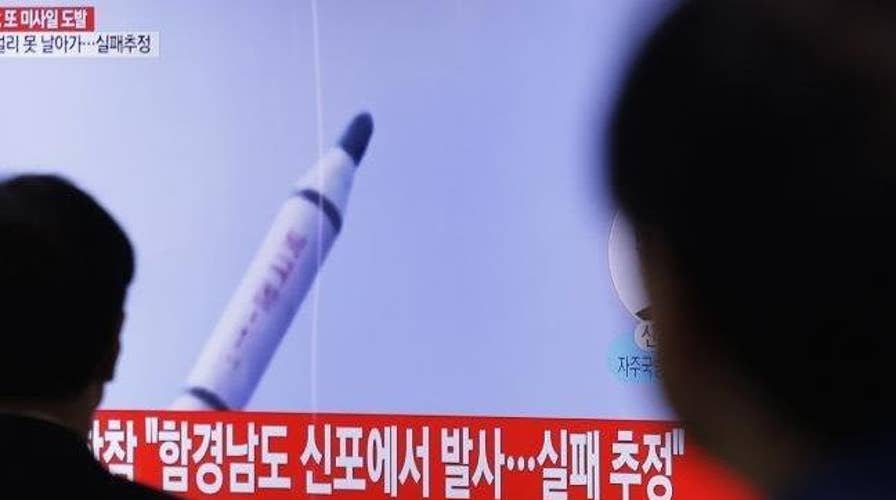Concerns over North Korea's ability to launch EMP attack
Experts disagree over the threat from a high-altitude nuclear blast and its resultant electromagnetic pulse; Doug McKelway reports from Washington
"A failure of imagination" is how some experts described the intelligence community's inability to foresee and interrupt the 9/11 plot. But it might as well describe America's apparent disinterest in preparing for a potentially bigger threat - an EMP, or electromagnetic pulse, a nuclear capability that North Korea is believed to be pursuing.
An EMP is a short burst of electromagnetic energy, specifically gamma rays, that all nuclear explosions produce to varying degrees. A large EMP triggered over the United States from a ballistic missile or a satellite orbiting at the right altitude could fry unprotected electronics from coast to coast, rendering electric grids, cellphones, banking and financial institutions, automobile computers, railways, air traffic control, and airplanes themselves, useless. Food would rot in refrigerators and in farm fields, with no means of transporting agricultural products to population centers.
But for all the Mad Max predictions that a EMP strike would cause, there are some who dismiss the threat.
"It's not real and it's something out of a James Bond movie," says John Tierney, the executive director at the Center for Arms Control and Non-Proliferation. "The general consensus is it's not a real threat imminent by any stretch of the imagination."
Dr. Peter Vincent Pry, chief of staff for the Congressional EMP Commission, vehemently rejects that assessment. "We're constantly cleaning up after these guys," he said.
"We have information, data from actual high altitude nuclear detonations that were conducted by us and the Russians back in the 1961-62 time frame, that did things like knock the lights out in Hawaii," Pry said. "But most dramatically what the Russians did when they triggered a series of high altitude EMP tests that destroyed electric grids and critical infrastructure at Kazakhstan, then an industrial area, an area larger than Western Europe."
Pry describes what he calls a nuclear "taboo" that allows the United States and many of its Western allies to cavalierly dismiss the threat.
"In the West, we have for generations believed that a nuclear war would be unthinkable. And for Western democracies, that is understandable, because democratic states derive their legitimacy from the people," he said.
"But for totalitarian and authoritarian states, where a nation would be willing to sacrifice itself for an ideology, in the case of Iran or North Korea, the use of nuclear weapons is not unthinkable. In their open source military doctrine, they've written for years about being able to win a nuclear war,” Pry said.
Adding to EMP worries -- North Korea's recent successful test of a solid-fueled ballistic missile. Solid fuel missiles need less preparation, meaning less warning time for those targeted.
In addition, North Korea has at least two observation or weather satellites whose orbits take them routinely over the U.S., at precisely the altitude that is ideal for an EMP attack.
For at least 15 years, Congress has struggled with many bills designed to harden the nations electric grid against an EMP attack. But none have made it out of committee. Special interests often intervene, fearful of the cost that hardening the electric grid would impose on utility customers, a fear heightened by the ongoing dispute over whether an EMP attack would be as destructive as hardening proponents proclaim.

